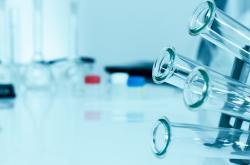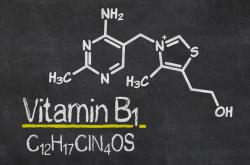Adrenal Fatigue Diet
Food plays a crucial role in recovery from adrenal fatigue. Learn what kind of eating plan supports the health of adrenal glands, the connection between blood sugar and adrenal hormones, and which foods you need to completely eliminate from your diet to recover from adrenal fatigue.
If you ask most people suffering from some level of hypoadrenia (more commonly referred to as adrenal fatigue) what factors have most impacted their condition, you’re likely to receive a wide variety of responses. Most will identify such things as a lack of proper rest and unmanageable stress as being the prime culprits. While those are certainly contributing factors in any patient’s state of exhaustion, there is another that can be just as critical: nutrition. Without the right nutrients, the body’s ability to handle the demands placed upon it by consistently high levels of stress will be dramatically diminished.
The problem confronting your body is simple, and related directly to the way your adrenals respond to the stressors you experience each day. To manage stress, your adrenals produce hormones, and this process can speed up your metabolism and consume more nutrients than you typically need. This results in a depletion of critical nutrients, which further hastens your progression toward total adrenal fatigue. Research has consistently proved that the best solution for this problem is to focus intently on ensuring that the food you eat has the nutritional value you need to maintain adrenal health.
It is important to note that your current eating habits may, in fact, be fairly healthy. None of this is meant to suggest that the food you’ve been eating is the main cause – or even one of the main causes – for your current state of fatigue. Even so, it is a fact that poor dietary habits contribute to far too many cases of adrenal fatigue for us to simply dismiss their impact. More importantly, we know for a fact that a balanced, nutrient-rich diet is one of the keys to fully recovering from this syndrome. As a result, it is critically important that people understand the impact food can have on adrenal fatigue.
Fatigue And The Blood Sugar Conundrum
A blood sugar disorder – hypoglycemia - often accompanies adrenal fatigue, and for good reason. The hormone cortisol is produced by the adrenal glands, and it is responsible for regulating sugar levels and ensuring that there is enough energy available for the body to perform as it should. When those levels are insufficient to meet that demand for energy, patients tend to feel run down and even exhausted. In patients suffering from this condition, that supply of cortisol is usually insufficient for maintaining proper sugar level balance over the course of the day. That’s one of the reasons why hypoadrenia sufferers often experience those roller coaster energy changes each day.
To make matters worse, the stress created by those sugar level imbalances can even further weaken the adrenal glands. As you might expect, that makes it even more difficult for the adrenals to produce the cortisol needed for sugar level regulation. This cycle can only be broken with a conscious effort to prevent the blood sugar levels from ever getting so low that they overtax your adrenals.
Eating Plan That Supports the Adrenals
One key thing that you can do to avoid that low blood sugar problem is to develop a meal schedule that counters the problem. If you’re like many people today, there’s a good chance that you’re still focused on following traditional eating habits that rely on three meals a day: breakfast, lunch, and dinner. There are probably even mornings where you skip the first meal altogether. If that sounds similar to the way you currently plan your meals, then it’s time for a change.
In this instance, the word “change” does not mean following one of those trendy diet plans that claim to heal the adrenals by limiting food intake in an attempt to stop the adrenals from producing too much cortisol. No, in this case, the goal is to ensure a steady and regular supply of blood sugar by eating more frequently, and focusing on eating healthier, more nutritional selections. You’ll eat more frequently to ensure that your adrenals are not called upon any more than necessary.
As we develop this eating plan, remember also that there is no shortcut to success when it comes to eating healthier. You might be tempted to drink more coffee or tea, or take an energy pill in an attempt to boost your alertness and stave off that feeling of exhaustion. Resist that temptation at all costs. Remember always that the temporary boost in energy you get when those outside stimulants increase your adrenal activity can have a long-lasting impact on the health of those glands.
When is the Right Time to Eat?
In designing a more beneficial eating plan, it is important to recognize that there are certain times of the day when you absolutely must eat something. The first of these is early in the morning. As you sleep, your body depletes the glycogen you stored from the previous day. That depletion of blood sugar places you in a vulnerable adrenal position almost from the moment you wake. To prevent that low blood sugar from creating problems throughout the day, you need to eat a healthy breakfast sometime before 9 or 10 in the morning.
Lunch should be eaten within a couple of hours after that first meal. The reason is simple: because of the almost complete depletion of glycogen that occurs during sleep, the body quickly burns through the nutrients and energy sources it takes in at breakfast. Moreover, if you allow too much time to pass between that first meal and your lunch, you run the risk of a sudden drop in blood sugar, which can then put your adrenal health at risk. As a general rule, try to make sure that lunch is consumed prior to noon.
That meal should be followed by a healthy snack two to three hours later, and then dinner three hours after the snack. Finally, a light, healthy snack before retiring to bed can provide the body with the extra nutrients it needs to ensure sound and restful sleep.
Remember, though, that the goal here is not to abide by some fixed set of arbitrary rules when it comes to determining the exact schedule at which you consume food. Monitor your own body and determine for yourself when you begin to have those lethargic periods during the day. Then schedule your food intake to prevent any drop in blood sugar. The goal is, after all, to help your adrenals in their delicate balancing act.
Choosing the Right Foods
Even those who have already figured out that they need to eat more often to counter the effects of unstable blood sugar levels often fail to eat the right foods. This is understandable, of course, given that there are so many different groups advocating for so many different dietary strategies. It can be difficult to sift through the many plans offered and reach any sound conclusions about the best kinds of foods to eat. No wonder so many people have such poor eating habits!
Just look at the different fad diets out on the market today. You have the low-carb diets, the no-carb diets, the soup diets, the juice diets, the cabbage diets and dietary plans involving nearly every food group under the sun. The one thing you rarely see is a dietary strategy that approaches the act of eating with anything even remotely resembling real balance. And that is a problem.
The fact is that foods contain protein, carbohydrates, and fat for a reason. All are essential for good health. Sure, many of those modern diet plans are premised upon the notion that you can lose weight or otherwise enjoy better health by focusing on one or two of those key elements while depriving yourself of the others, but those plans are not the optimal strategy for maximizing your energy levels or normalizing your blood sugar levels. So, what is that plan?
Basic Rule for Adrenal Friendly Diet
Here’s the thing: your body needs glucose to burn as fuel. It will either get that glucose by burning protein, fat, and carbohydrates.
Carbohydrates come in 2 forms: complex and simple carbohydrates. Complex carbohydrates are, for example, whole grains, green and starchy vegetables, beans, lentils, and so on. They provide your body with lots of beneficial nutrients, such as fiber and vitamins. Most importantly, once consumed, these carbohydrates are slowly released in the blood stream and don’t cause blood sugar spikes.
On the other part of the spectrum, there are processed or the so-called simple carbohydrates, such as white flour and all products made from it, corn syrup, maple syrup, molasses, and sugar.
The problem with simple carbohydrates is that they cause rapid blood sugar level spikes and worsen hypoglycemia. The body burns through them at a rapid pace and soon you feel the need for more or your level of alertness falls.
By avoiding sugars and white flour products and consuming plenty of fats, carbohydrates, and proteins, you’ll be providing your body with a fuel source that it can burn more slowly over time. This slower conversion process places much less demand on the adrenals, as they are not called upon to provide emergency regulation of erratic blood sugar levels.
So what are these basics foods that you should be eating? To better understand the proper way to construct an adrenal-friendly dietary strategy, we’ll examine carbohydrates, protein, and fats separately.
Carbohydrates Are Vital
Carbohydrates are found in a wide variety of food types, and come in three main categories: grains, vegetables, and fruits. Given the obvious differences between those three types of food, it will probably not surprise you to learn that they are very different in the way they impact your body.
Grains
Whole grains include things like brown rice, whole oats, whole wheat, and barley. These grains have seen little processing, and are thus closest in value to their natural levels of nutrition. In most instances, they should be cooked with little fanfare – just a light washing and some time in a pot. They are metabolized fairly slowly and consistently over time, making them a perfect fuel source for anyone afflicted with adrenal fatigue, provided they are consumed with protein and fat.
Refined grains like white rice or white bread have had pretty much every bit of nutrition stripped away during the refining process. As a result, they actually steal nutrients from the body to aid in digestion. That makes the consumption of these foods counterproductive for anyone who is seriously trying to improve his or her health. Better to skip them altogether wherever possible.
One last note, though: for many, the cereal grains should be avoided in the morning. Since they burn faster than proteins and fats, grains can leave you feeling energy-depleted within a few hours after that first meal. A better option is to choose a solid protein source for your first meal, and include a light portion of oatmeal or rice to provide balance.
Vegetables
Vegetables not only provide carbohydrates and some protein, but are also vitally important for obtaining the necessary vitamins, fiber, minerals, and antioxidants that the body needs for optimal health. As a result, you should eat a minimum of six servings of various vegetables each and every day. Include as much variety as you can, and try to opt for those that are of the bright-colored variety. To get the most out of your vegetable choices, remember the following keys:
- Cook them in a variety of ways. Different vitamins and nutrients are made available through different cooking methods
- Don’t be afraid to eat vegetables with high sodium content
- Forget about weight gain from vegetables – it won’t happen!
Fruits
Fruit is one of those carbohydrate sources that many diets rely on, and in a way that does make sense. Since they are both sweet and natural, there is a tendency to think of them as being tremendously beneficial.
While that is true in the sense that they contain various vitamins and minerals, they also come with a drawback that can be devastating for adrenal fatigue sufferers: they quickly convert to glucose and can cause sudden spikes and drops in blood sugar levels. Obviously, that makes them a poor choice for breakfast. Moreover, the chemicals sprayed on many of these fruit varieties can negatively impact the health of people with weakened adrenals, so only the organic options should be selected.
As a general rule, limit your fruit portions each day to fruits with less sugary content, such as berries, kiwi, cherries, and apples. Avoid bananas, oranges, grapefruit, figs, grapes, and dates.
If you’re worried about the nutritional value you’ll lose from avoiding these fruits, never fear. Most of those vitamins are also found in the vegetables you’ll be eating.
The Importance of Protein
Protein is an often underrated element of recovery for hypoadrenia patients. Even those who know they need more protein in their diets often miss out on many of the best food sources, opting instead for processed meats or powder supplements.
As a rule, however, you should be getting as much protein as you can from quality foods like meat, eggs, fish, dairy products, and protein-rich plants. These foods should be cooked only to the extent necessary to avoid bacterial contamination, so that as much of the nutritional value as possible is retained. Light cooking also tends to preserve the amino acids and prevent them from being broken down.
For those who have more delicate stomachs and greater difficulty digesting many of the heavier proteins, eggs and some of the lighter cheeses can be a great choice. Each egg has roughly six or seven grams of protein, making this food both a potent source of this critical dietary need, but an affordable one as well. Greek yogurt is a great example of a non-meat based protein, as are various types of beans.
Be sure to include a protein source in each meal every day. If you’re also engaged in regular physical activity as part of your recovery plan (you should be!) then you will want to increase the amount of protein you consume to ensure that your muscles have the amino acids and other nutrients they need to properly heal from that stress.
Fats are Not Your Enemy
Fats are among the most misunderstood food types in the Western world. There’s been so much bad research and faulty conclusions bandied about that the average consumer today has almost no idea what to believe. While entire books exist on this subject, we’ll just stick to the most essential issues related to recovery from hypoadrenia.
First of all, fats are not bad for you. Neither is cholesterol. In fact, some of these fatty foods contain exactly the good cholesterol needed by your adrenals to produce the hormones the body uses throughout each day. Without that fat and cholesterol, your adrenals would be left with no raw materials with which to work. In addition, you need certain fats to keep inflammation under control, maintain the health of your skin, and even stave off cellular aging. The key is to keep the so-called “essential fats” in your diet, while reducing your consumption of unhealthy fats.
Essential Fats
The essential fats are those fatty acids that we cannot produce within our own bodies. We need various kinds of food to obtain our necessary supply of these acids, and most of that food comes from plants and animals.
These acids come in two types: the Omega-3 acids, and the Omega-6 acids. Omega 3 fatty acids are the ones that are most well known for their health benefits. You can find them in fatty fish, such as salmon, sardines, and anchovies, and in certain seeds and nuts (flax seeds and walnuts and oils made from them).
Sees and nuts should be a part of any sound dietary strategy, as many contain the elements your adrenals need to create various hormones. One example is cholesterol. When you lack the necessary cholesterol for hormonal production, your body can convert seeds, nuts, and oils to make what it lacks.
Your New Diet Plan
So, how do you put it all together? Let’s review the way you should be eating:
- Eat five or six times a day, with three small main meals and two to three snacks between meals.
- Include proteins, complex carbohydrates, and fats in each meal.
- Avoid fruits and cereals in the morning.
- Have at least six vegetable servings each day.
- Enjoy healthy fats, but limit fat intake to no more than twenty percent of your calories.
- Eat whole grains whenever possible.
- Do not forget the seeds, nuts, and other fat sources.
- Choose lean protein sources and cook only as much as needed to be safe.
Avoid these foods like the plague:
- Sugary foods
- Anything made from white flour
- Vegetable shortening
- Non-organic peanut butter
- Margarine
- Fried foods
- Any fast food, for that matter
- Processed foods
All of the foods listed above share one or more of the following characteristics. They either have been processed to the point where they have little or no nutritional value, can cause uncontrolled spikes in your blood sugar, or contain harmful free radicals that can ruin your health. Oh, and many of them can contribute to the type of weight gain that will only further stress your adrenals.
In addition, there are some healthy eating habits that you should also develop if you want to maximize your dietary success and help your adrenal recovery. Whenever possible, try to eat in a sitting position, and in a relaxed locale. Try not to eat when you are overly excited or feeling rushed, since that can inhibit proper digestion. Never eat immediately after exercising.
And don’t forget to chew your food thoroughly. Remember, the more you process each bite before swallowing, the easier a time your body will have digesting the meal.
To Sum Up
Recovering from adrenal fatigue can be a long and arduous process. There are so many factors that go into overstressing your adrenals that full recovery involves almost complete changes in nearly every area of your life. To make that process truly effective, you need to ensure that your dietary strategy is designed to help your adrenals avoid greater trauma, while also providing your entire body with the nutrients it needs for better overall health. If you follow these simple guidelines and make good choices, you’ll be well on your way to the recovery you seek.
You might also be interested in:
1. Adrenal Fatigue Syndrome: Dietary and Lifestyle Recommendations to improve symptoms. http://naturopathconnect.com/articles/adrenal-fatigue-syndrome-dietary/ 2. Adrenal Fatigue Diet. http://goodfoodeating.com/2349/adrenal-fatigue-diet/ 3. Adrenal Fatigue Diet. http://www.drlam.com/protocol/diet/andrenal_fatique_diet.asp 4. The Best Foods for Adrenal Fatigue. http://www.livestrong.com/article/129594-foods-adrenal-fatigue/ 5. 3 Steps to Heal Adrenal Fatigue. http://draxe.com/3-steps-to-heal-adrenal-fatigue/



















Leave a comment